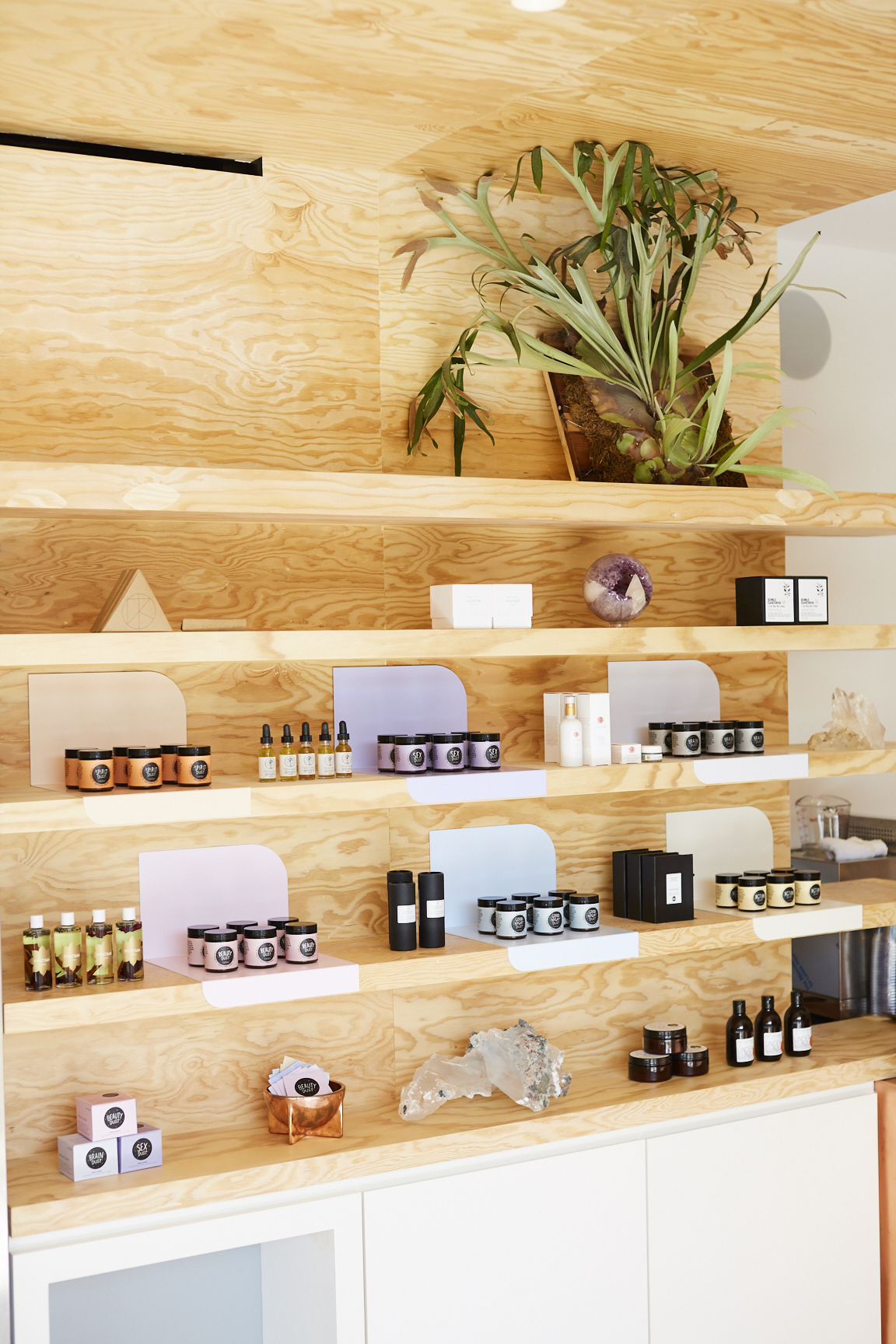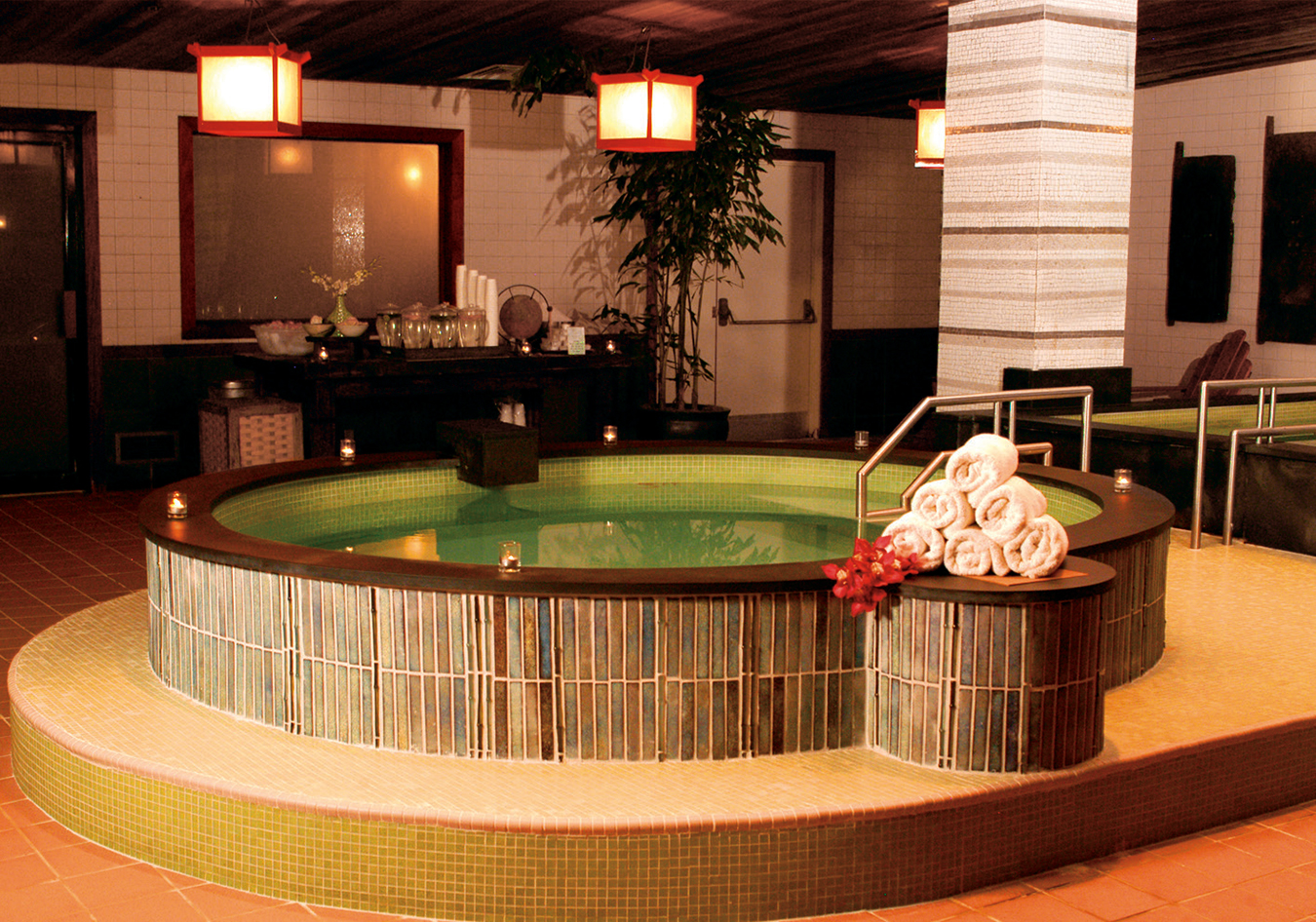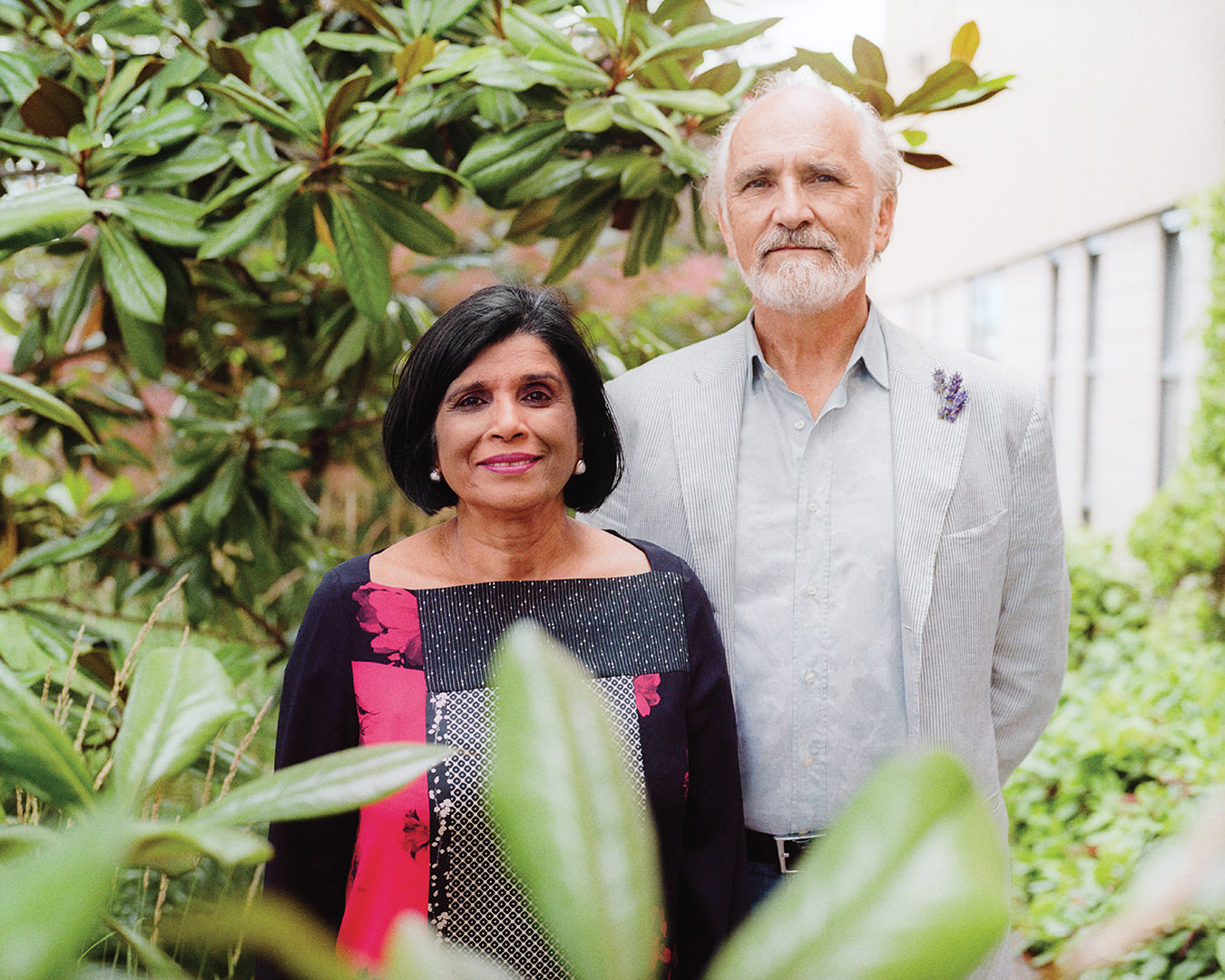Sex Dust, Moon Juice, Snake Oil
Are wellness products status symbols, or something more?

At $60 a pop, Sex Dust—a libido-boosting powder made by Californian health company Moon Juice—could simply be the finest of all snake oils. After all, the American supplement industry is highly unregulated and, like many wellness supplements, Sex Dust’s ingredients of hou shou wu, cistanche, and shilajit lay claim to unproven benefits. Still, its foxy branding and celebrity fan base has everyone intrigued. Gwyneth Paltrow even offers recipes for chocolate “sex bark” (along with “spirit truffles” and “beauty milk,” all calling for Moon Juice–made ingredients) on her website.
First launched as a fresh-pressed juice shop in California’s Venice Beach in 2011, Moon Juice has since expanded to East L.A.’s ultra-hip Silver Lake neighbourhood, with plans to open in New York next year. The bricks-and-mortar shops are minimalist, earth-mother chic, and artfully littered with healing crystals and raw vegan treats. Juice, snacks, and smoothies comprise Moon Juice’s core products, but its expansion into the health supplement industry is a wily move: due to a rising dissatisfaction with what pharmaceuticals have to offer, Americans are now spending over $30-billion a year on alternative medicines and procedures.
Moon Juice’s founder, Amanda Chantal Bacon, personifies her company’s values: sun-kissed and in a state of perpetual Zen, she advocates holistic health, and isn’t shy about sharing her niche eating habits. While most of us can understand the appeal of green juice—after all, it’s just your five-a-day whirred up—the company’s lesser-known ingredients might seem like a harder sell to North American audiences. Many of Moon Juice’s supplements are derived from traditional Chinese, Indian, and indigenous American practices; shilajit, for example, is a sticky, tar-like substance collected from the Himalayas, used in Ayurvedic medicine for its energetic properties. Goji is one of China’s oldest natural medicines. But, according to cultural research firm Canvas8, “the mainstreaming of alternative healing methods in the U.S. may be traced to Gen Y’s increasing ethnic diversity”—especially on the West Coast, where culture has been shaped by Pacific Rim influences for centuries.
In spite of its free-spirit branding, the key to Moon Juice’s appeal might lie in an opposite tendency: our obsession with being our best selves. The promises made by supplements like Sex Dust, Brain Dust, and Beauty Dust are ambiguous but irresistibly aspirational: have better sex, think more clearly, and look more radiant. As the lines between work and pleasure blur, the pressure to overachieve in all areas of life is building. The widespread pursuit of aggressive aesthetic minimalism, or the growing fixation with biohacking, shows just how much we’ve equated best with what’s most productive. Moon Juice epitomizes the type of modern, healthful indulgence that’s turned detox retreats and yoga bodies into a new kind of status symbol. In designing products that claim to “make bodies more beautiful inside and out,” the company is winning clients with a softer, natural version of personal transformation that’s less invasive than a microchip implant. But take that Sex Dust with a grain of salt: “The wellbeing ideology,” writes Laurie Penny, “is a symptom of a broader political disease.”




